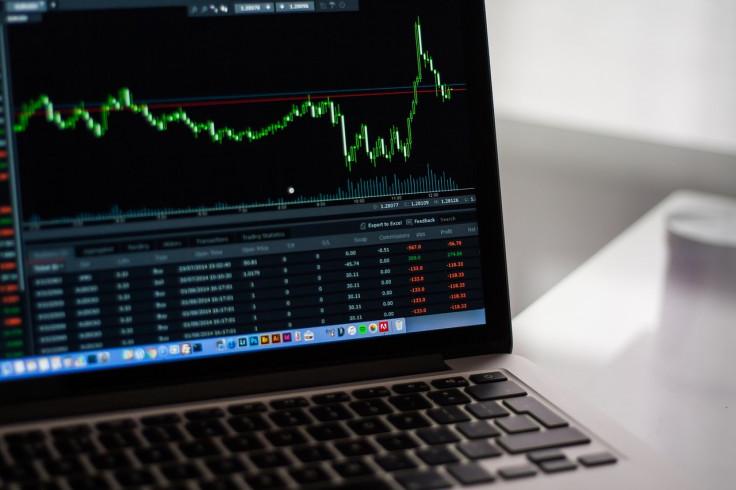Stocks Roar Back Led By Technology Shares – Will Moody's And Inflation Spoil The Rally?

U.S. stocks roared back at the end of last week in a volatile week.
The rally was led by a strong performance in technology shares, which spread to the broader market.
The S&P 500 closed at 4,415.25, up 1.1 % for the week; the Dow Jones at 34,283.10, up 0.53%, and the tech-heavy Nasdaq at 13,798.1, up 2.07%.
These gains came on the heels of the previous week's rally when the S&P 500 was up 4.8 %, the Dow Jones up 4% and Nasdaq 5.1%.
Meanwhile, the 10-year U.S. Treasury bond yields remained steady, ending the week at 4.63%, roughly where they started trading at the beginning of the week, but above 4.45%, the previous week's closing.
Trade during the week was volatile for both stocks and bonds.
"This week was certainly not a quiet one in the market," Ian Toner, chief investment officer of Verus of OCIO services, told International Business Times. "Early in the week, things appeared to stabilize due to a strong earnings season, clarity on the end of the hiking cycle, solid economic strength and a lack of new data. Later in the week, however, we were reminded of the uncertainty ahead."
For instance, all major averages dropped on Monday before they recovered on Tuesday. But they dipped again on Wednesday and Thursday before staging a solid rally on Friday.
Likewise, U.S. Treasury bond yields dipped from 4.62% early in the week to 4.50% by the middle of the week before spiking to 4.60% on Thursday, dipping to 4.57% on Friday morning and ending at 4.63% on Friday afternoon.
The primary driver of the volatility seen in both markets is conflicting signals from Fed officials.
Early in the week, stocks and bonds got a boost from comments from Chicago Fed President Austan Goolsbee. He floated the narrative that the U.S. economy is on a "golden path" of lower inflation and moderate growth, which renewed investor interest in equities and debt.
But that interest was short-lived as Fed Chair Jerome Powell reminded investors on Thursday that the nation's central bank is only done raising interest rates once its inflation mandate is fulfilled.
Still, another factor contributed to market volatility: the upcoming meeting between U.S. President Biden and Chinese President Xi Jinping. It raised hopes of easing tensions between the two countries, reviving the interest in high-tech shares on Friday. Tech companies stand to benefit from the easing of tensions between China and the U.S.
But a couple of things could spoil Wall Street's mood again this week. First is Moody's downgrade of the U.S. outlook due to the growing deficits and polarization.
"Considering that S&P and Fitch had both previously — with good reason — cut the U.S. rating, it was only a matter of time before Moody's did similar," said Michael Ashley Schulman, CFA.
Still, Moody's move could push bond prices lower and higher yields, raising valuation concerns for stocks and reversing the gains in the last two weeks.
Second is releasing two inflation metrics, the consumer price index (CPI) on Tuesday and the producer price index (PPI) on Wednesday. They will provide further clarity on the effectiveness of monetary policy in reigning inflation and set the tone for the next Federal Open Market Committee (FOMC) meeting and the bond and equity markets.
"The Federal Reserve will be paying careful attention to the upcoming Producer Price Index and Consumer Price Index reports next week, as well as the Personal Expenditure Index, which will be released on November 30," David Kass, clinical professor of finance at the University of Maryland Robert H. Smith School of Business, told IBT.
"With the current unemployment rate of only 3.9%, the Federal Funds rate of 5 1/4%-5 1/2% may be increased by 1/4% at the next FOMC meeting on Dec. 12-13, 2023," he added. "If these measures of inflation indicate that little or no progress is being made in reducing the rate of price increases."
"At this point, we are data dependent. Inflation and economic reports need to reflect the lag effect of Fed policy decisions and the generally higher interest rates for the Fed to stay in 'pause' mode," added Todd Walsh, CEO of Alpha Cubed Investments.
Meanwhile, Toner expects volatility to stick around Wall Street. "Volatility is likely to continue as markets digest a complicated environment," he said. "Higher interest rates continue to bite, inflation is stubborn, and as markets continue to focus on the U.S. government debt issuance schedule."
© Copyright IBTimes 2024. All rights reserved.





















